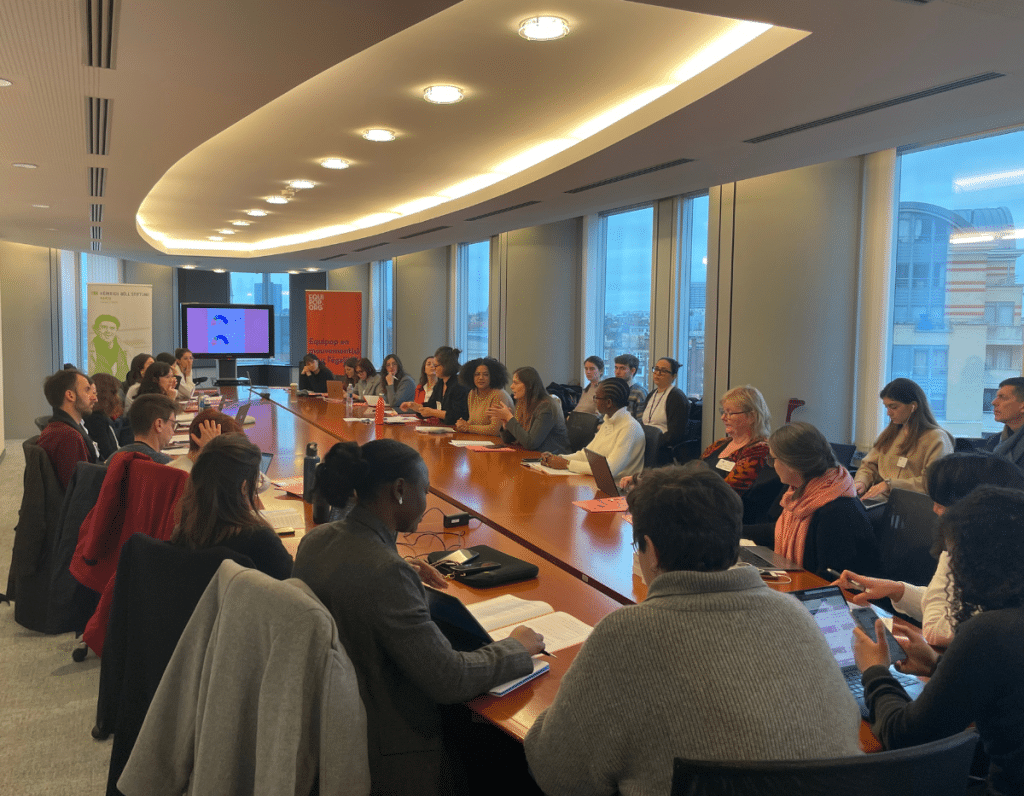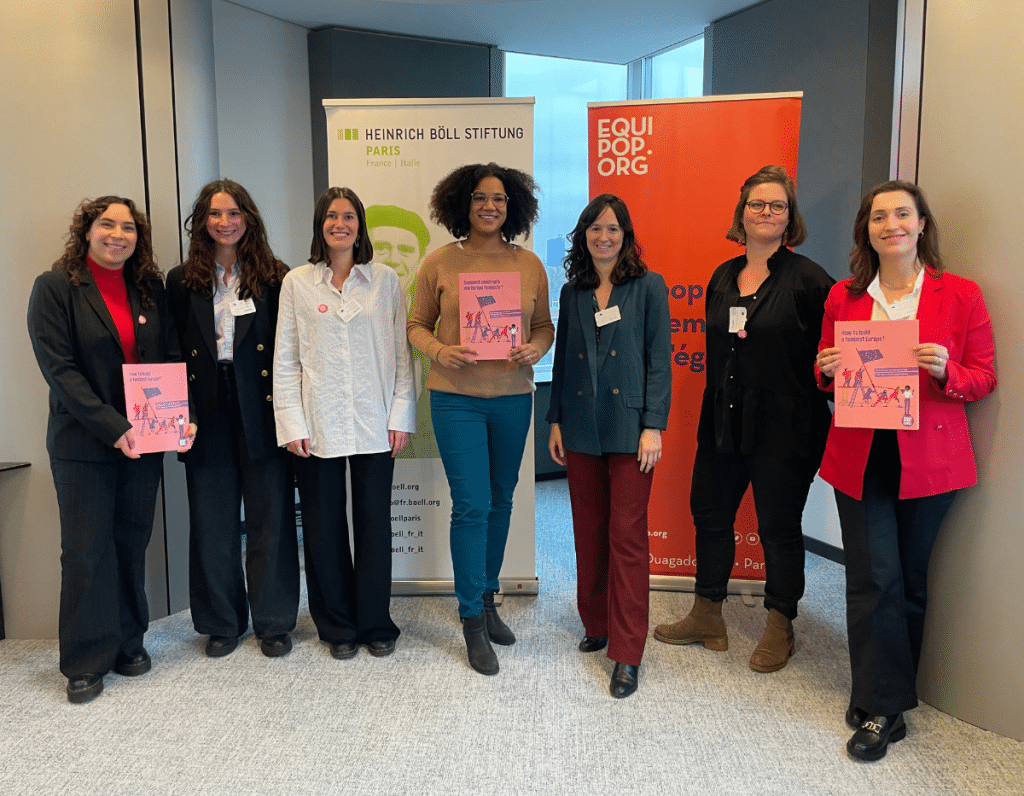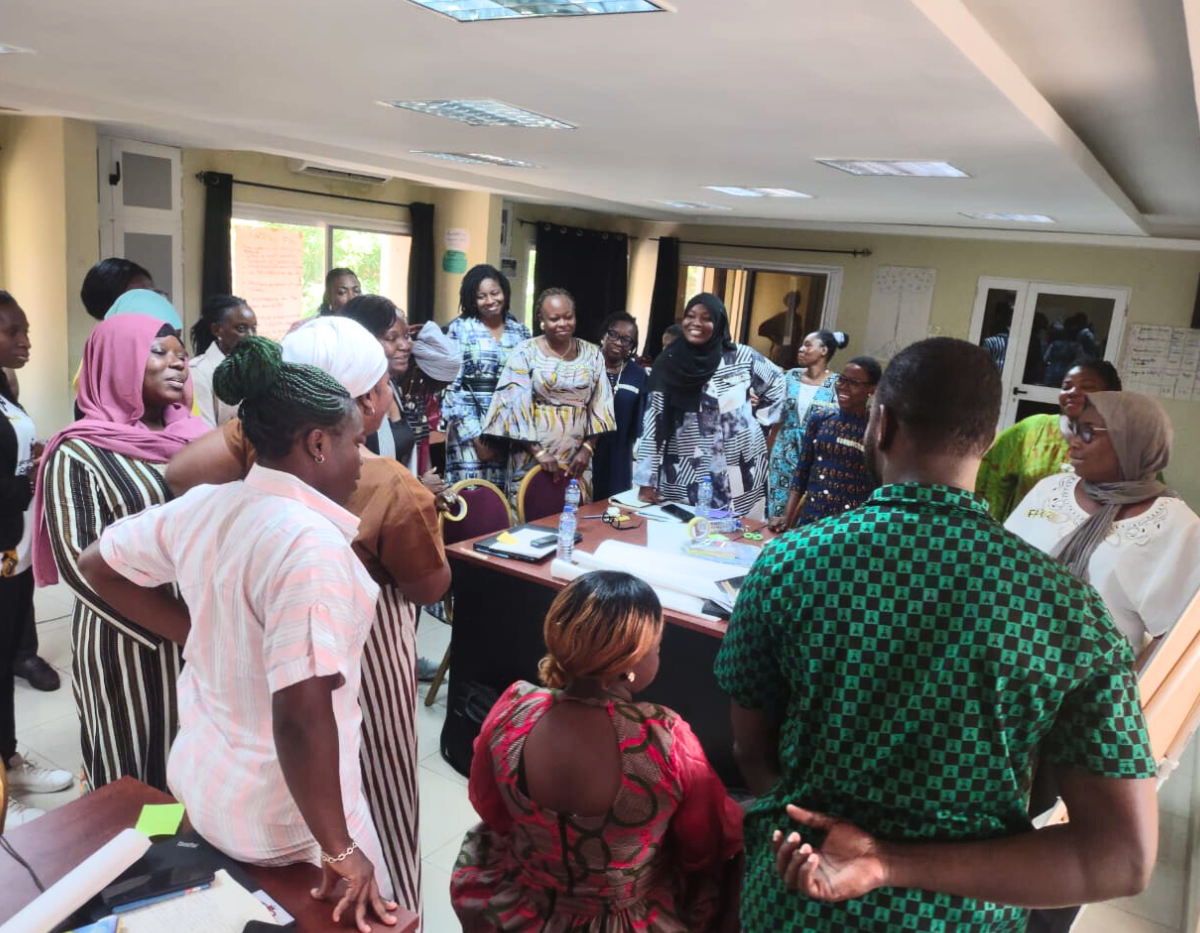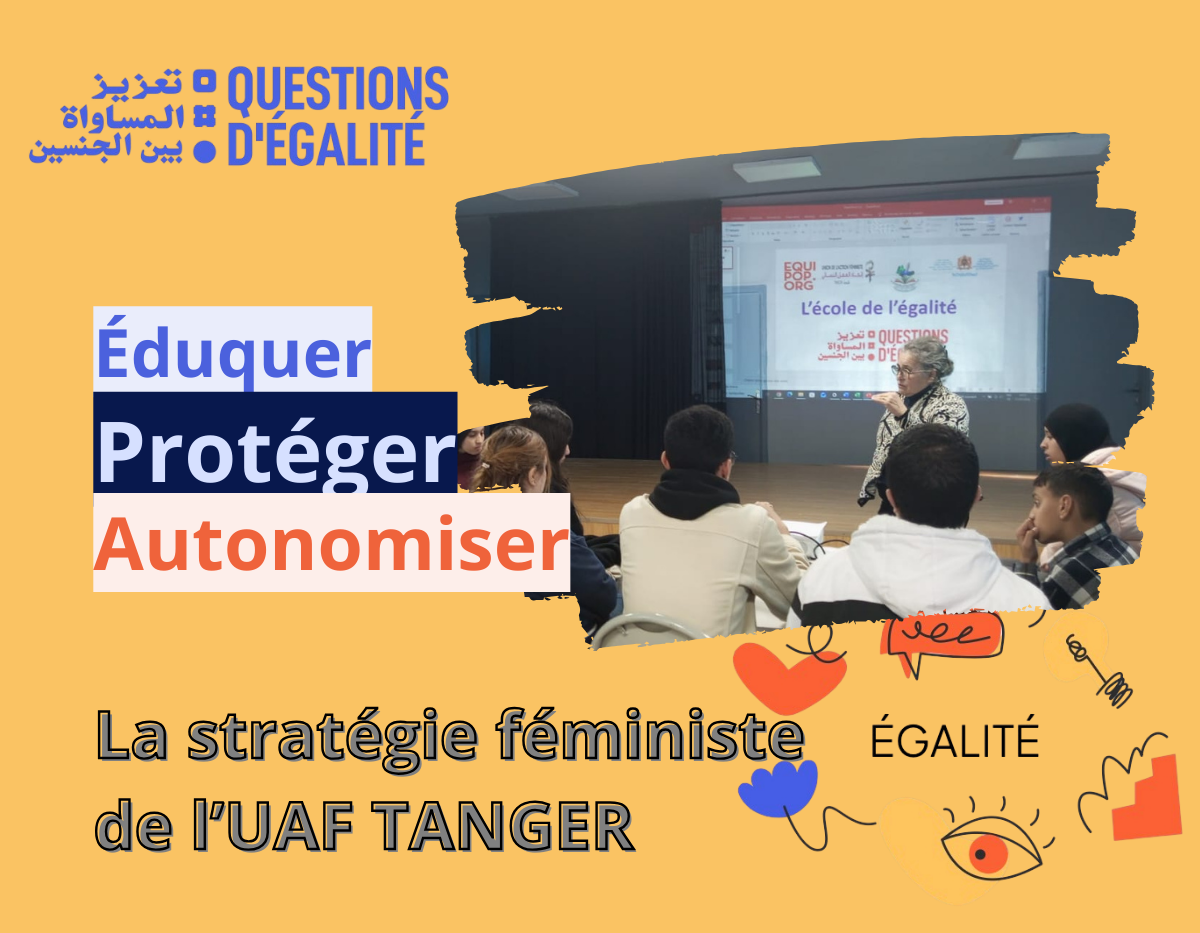On Tuesday, December 10, 2024, to mark International Human Rights Day, Equipop co-organized, in collaboration with MEP Mélissa Camara, a launch event at the European Parliament to present its new report, “How to Build a Feminist Europe? The challenges posed by the far right in the wake of the European elections”. This report, written by Equipop in cooperation with the Heinrich-Böll-Stiftung Paris association, serves as the second part of a study titled, “Quand l’extrême droite avance, les droits de femmes reculent”. It provides an overview of the European Union’s post-election landscape, focusing on the rise of far-right parties, their strategies, and their impact on the rights of women and LGBTQIA+ individuals.
Brussels: a strategic venue to launch Equipop’s new report
The choice of Brussels as the venue for the launch was particularly strategic. As a key democratic institution, the European Parliament plays a crucial role in promoting human rights, including the rights of women and LGBTQIA+ individuals across Europe. The European Parliament has been instrumental in major advancements on gender equality and the fight against violence against women. For instance, in June 2023, its pressure proved decisive in pushing the EU to ratify the Istanbul Convention, a landmark text for promoting gender equality. More recently, in April 2024, the European Parliament adopted the directive on combating violence against women and domestic violence, marking another significant legislative milestone for women’s rights. Equipop’s report launch event, “How to Build a Feminist Europe? The challenges posed by the far right in the wake of the European elections”, brought together a wide range of participants, including media representatives, associations, students, and MEPs, to discuss strategies to counter the far right and build a feminist Europe. Several speakers shared their insights, including Lucie Daniel, Advocacy Officer at Equipop, and Morine Chauvris, Advocacy Assistant, who presented the report and its findings. MEPs Mélissa Camara and Emma Rafowicz also addressed the audience, alongside Equipop’s partners, such as Marie Tempesta (IPPF) and Aline Burni (Walking the Talk), to explore collaborative strategies for advancing gender equality and resisting the far-right agenda.
A shared observation: the rise of the far right and its threats to women’s rights
An unanimous observation has emerged: the ongoing feminist revolutions are provoking and/or clashing with a « backlash, » through which reactionary movements across Europe are deploying strategies to undermine progress on gender equality and roll back hard-won rights. The far right both fuels and exploits this « backlash. » Through the presentation of its report, Equipop analyzed the historic rise of far-right parties following the 2024 European elections. These far-right parties now constitute the main opposition force to women’s rights and LGBTQIA+ rights. Beyond their increased representation in the European Parliament, the far right emerged victorious in five countries: France, Italy, Austria, Belgium, and Hungary. Additionally, Equipop highlighted that, while European far-right groups are often perceived as fragmented due to economic and geopolitical divergences, they have no difficulty uniting around the most regressive positions on immigration, women’s rights, and LGBTQIA+ issues. In recent years, the far right has adopted a strategy embodied in femonationalism, a concept developed by researcher Sara R. Farris. This term refers to the instrumentalization of feminist struggles for racist electoral purposes, particularly evident in the rhetoric of several far-right figures who frame immigration as a primary threat to women’s rights in Europe, falsely blaming migrants as the main perpetrators of sexual and gender-based violence. Furthermore, as highlighted by Aline Burni, Head of Policy and European Engagement at ODI Europe, women represent only 20% of members in “influential committees” such as the Foreign Affairs Committee (AFET) or the Budget Committee (BUDG), and the number of women chairing committees continues to decline. Additionally, there is a noticeable disengagement of male MEPs within the FEMM Committee, as women’s rights and gender equality are still perceived as “exclusively female issues.” A revealing trend is the growing presence of far-right members in the FEMM Committee. This new far-right strategy, also analyzed in Equipop’s latest report, seeks to undermine gender equality progress while projecting a superficial interest in these issues. Moreover, the threat to the « cordon sanitaire » in the European Parliament was a key topic of discussion during this event, particularly the trend of the PPE’s “radicalization” towards the far right. This political group now openly allies with far-right European parties on issues such as the Green Deal and immigration policies. Women’s rights, a topic on which the PPE holds an ambivalent stance, could be among the first casualties of such alliances in the future.
In the face of the far-right, let’s organize together!
However, this reactionary offensive is not unstoppable. Everywhere it arises, feminist organizations, social movements, and political actors are mobilizing to resist. Although the situation is dire, a resounding message emerged: “If we organize, we can succeed!” As emphasized by Mélissa Camara and Emma Rafowicz, progressive forces from civil society and the European Parliament must demonstrate ambition and refuse to back down in the face of the far right. By organizing together—civil society, MEPs, and feminist movements—we have the power to advance feminist principles. Several levers of action have been identified to counter this backlash and block the far right. Among the priorities, as highlighted by Marie Tempesta of IPPF, is the critical need to increase the Gender Budget within the MFF (Multiannual Financial Framework). Secondly, the creation of a budget line specifically dedicated to funding feminist organizations should be considered. MEP Emma Rafowicz also stressed the importance of advocating for a feminist foreign policy at the European level and building alliances beyond the Greens and S&D groups. Additionally, while the ratification of the Istanbul Convention by the EU represents significant progress, it remains essential for all EU Member States to ratify it at the national level as well. A more immediate action suggested was to collectively call on European Commissioner Ursula Von der Leyen to clarify the political stance of her party, the EPP, within the European Parliament in the context of the new legislature, particularly as it has already started voting alongside the far right. Finally, European citizen initiatives such as My Voice, My Choice are in place. Led by activists and feminist organizations, this initiative calls for justice and respect for fundamental rights, particularly sexual and reproductive rights, working to ensure access to abortion across Europe [here]. Through the dissemination of this report and, more broadly, as part of its European-level actions, Equipop will continue fostering such exchanges and meeting with MEPs as part of a strategy of international and cross-party mobilization. The organization will closely monitor the actions of European Commissioners on gender issues and will work to maintain media visibility on these topics. Additional events, in Brussels and other parts of Europe, are planned for 2025 with the aim of building a feminist Europe. The full report, How to Build a Feminist Europe? Post-European Elections Challenges in the Face of the Far Right, is available [here].






